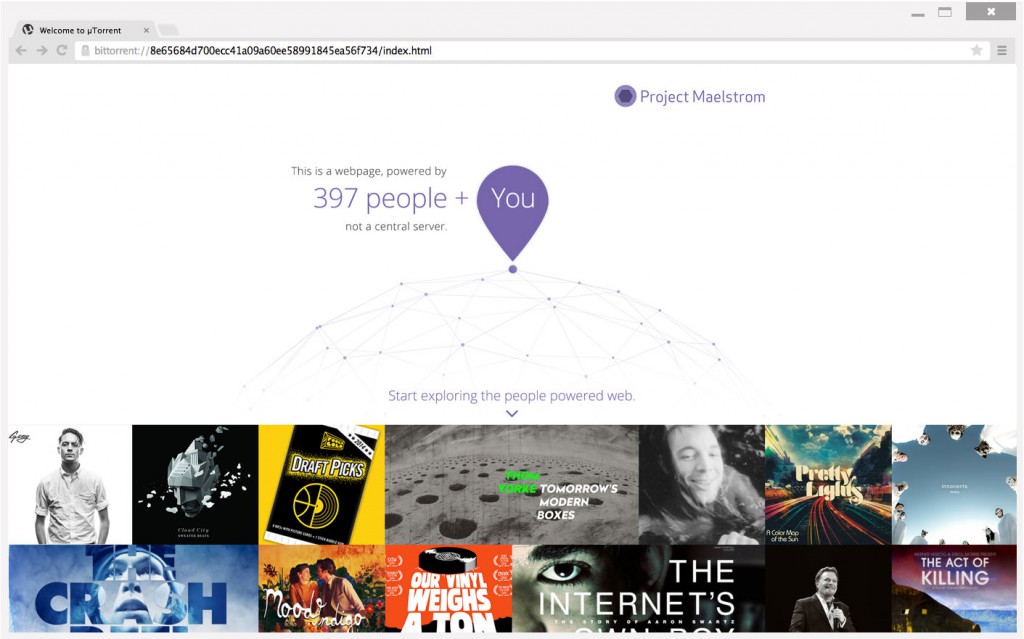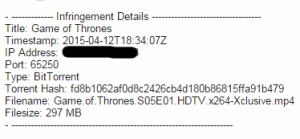VPN and Site Blocking Attacked By Consumer Group
lundi 20 avril 2015 à 10:46 After Attorney-General George Brandis and Communications Minister Malcolm Turnbull asked the Australian Cabinet to approve the development of a new legal mechanism allowing rightsholders to obtain site-blocking injunctions, legislation was introduced to parliament last month.
After Attorney-General George Brandis and Communications Minister Malcolm Turnbull asked the Australian Cabinet to approve the development of a new legal mechanism allowing rightsholders to obtain site-blocking injunctions, legislation was introduced to parliament last month.
What followed is a still-current six-week consultation period for additional submissions, with various groups invited to voice their opinions and concerns.
While the site-blocking elements of the Copyright Amendment (Online Infringement) Bill 2015 are likely to please rightsholders, concerns remain that not only will the legislation fail to achieve its aims, but may also have unintended consequences that could stifle consumer choice.
In its submission the Australian Communications Consumer Action Network (ACCAN), the body that represents the interests of consumers on communications issues including broadband and emerging Internet services, three key issues are raised – VPN use, efficacy and cost of blocking, plus consumer interests.
The VPN problem
ACCAN is concerned over some of the wording employed in the amendments. Instead of referencing “website blocking”, the legislation speaks about “online locations”. While this appears to be an effort to future-proof the Bill, it also has the potential for additional consequences should rightsholders decide to exploit the ambiguity.
“Our first concern relates to the scope of activities that may be picked up by an interpretation of an ‘online location’ which ‘facilitates an infringement’ of copyright,” ACCAN writes.
“Without clear legal precedent, there is ambiguity under the Copyright Act about what constitutes infringement in relation to the use of a Virtual Private Network (VPN) to gain access to geo-blocked products and services. If this ambiguity is not cleared up, this amendment may have the unintended consequence of blocking these services and in turn harm competition and consumer choice.”
And confusion does exist. On his website Minister for Communications Malcolm Turnbull says that the Copyright Act does not make it illegal to use a VPN to access overseas content. On the other hand, the Australian Copyright Council believes that using a VPN to download content licensed overseas is “likely to be an infringement of copyright in Australia.”
While it was previously reported that the Bill had been delayed due to modifications aimed at protecting VPN-like services, ACCAN says that it would prefer clarity on the matter.
“While this ambiguity exists there is a risk that rights holders will attempt to use this injunctive power to block VPN websites and limit consumer access to paid content overseas,” the group writes.
And the threat is real. As reported last week, New Zealand based media companies report that they are on the verge of suing local ISPs who provide VPN services designed to unlock overseas content. Avoiding the same thing Down Under is a priority for ACCAN.
Protecting the public interest
In most countries where rightsholders have demanded site blocking on copyright grounds, ISPs have refused to block voluntarily and have insisted on a court order. This has resulted in processes where movie and recording industry companies become the plaintiffs and ISPs the defendants. The sites themselves aren’t involved in the process, and neither are their users.
“[We] remain concerned that a judge in an ex parte hearing will not have the requisite evidence at hand to weigh the public interest against those of rights holders,” ACCAN writes.
“The amendment creates no right for legitimate users of a site to present evidence on any adverse consequences of an injunction. There should be a presumption in the Bill in favor of allowing parties to become interveners or amicus curiae in the context of these injunction applications.”
Efficacy and costs of blocking
Like many other similarly focused groups, ACCAN is concerned that not only will site / online location blocking prove ineffective when it comes to stopping infringement, but the bill for the exercise will ultimately fall at the feet of the consumer.
Citing Dutch studies which found that blocking The Pirate Bay enjoyed only short-lived success, ACCAN voices concerns that once one site is blocked, users will simply migrate elsewhere.
“This research confirmed the findings in other studies which found that legal action against file sharing often has an immediate effect, but this typically fades out after a period of six months as new sources for pirated content emerge. ACCAN’s concern is that this website blocking bill may devolve into an expensive game of ‘whack-a-mole’, which consumers will end up paying for through higher internet bills,” the group writes.
Similar fears over consumers picking up costs for online infringement enforcement have been voiced across Europe and in the United States, but in no cases has that caused a court to deny rightsholders the opportunity to protect their copyrights. It is guaranteed that one way or another – via their Internet bill or through the cost of media – Aussies will eventually pay for the proposed enforcement measures
The Bill is currently under review by the Senate Legal and Constitutional Affairs Legislation Committee, with a report due in a little under a month.
Source: TorrentFreak, for the latest info on copyright, file-sharing, torrent sites and anonymous VPN services.
 This week we have four newcomers in our chart.
This week we have four newcomers in our chart. San Francisco-based BitTorrent Inc. already has a few popular applications in its catalog, including uTorrent and Sync. However, with its new “people-powered” browser it hopes to spark another revolution.
San Francisco-based BitTorrent Inc. already has a few popular applications in its catalog, including uTorrent and Sync. However, with its new “people-powered” browser it hopes to spark another revolution. 
 After years of numerous hardware companies flirting and largely failing with the format, half a decade ago the revolution the tablet market had been waiting for finally arrived.
After years of numerous hardware companies flirting and largely failing with the format, half a decade ago the revolution the tablet market had been waiting for finally arrived. Last week’s pre-release
Last week’s pre-release  Nonetheless, HBO hopes that the warnings will deter some from downloading future episodes. And indeed, some users may panic when they see that their downloads were flagged.
Nonetheless, HBO hopes that the warnings will deter some from downloading future episodes. And indeed, some users may panic when they see that their downloads were flagged.